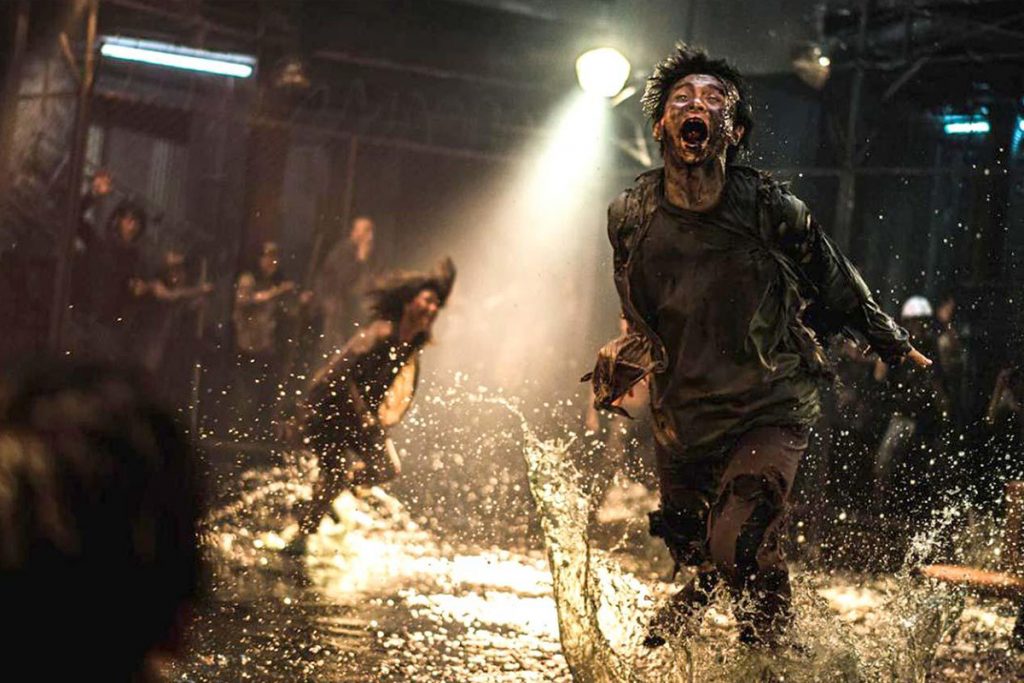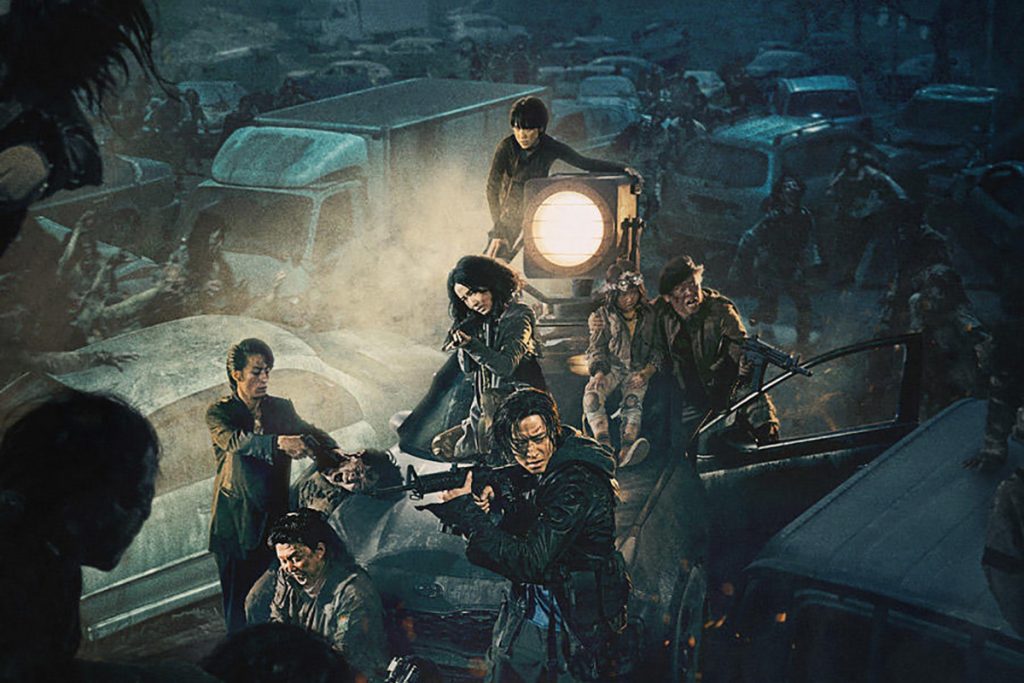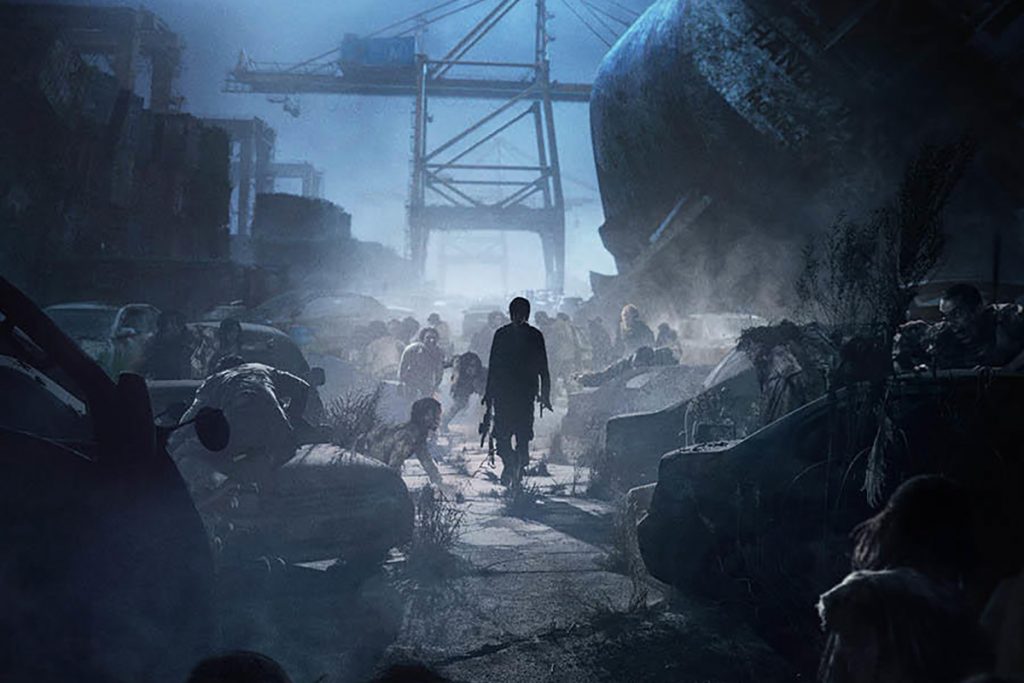Train to Busan is a revolutionary Korean film that quickly became a post-apocalyptic cult classic after its release in 2016, so it only makes sense that its follow-up would be highly anticipated. But has it been well-received by film critics?
Train to Busan Presents: Peninsula (yes, that’s the full name) is not technically a sequel to the 2016 film, but is said to take place in the same universe four years later, according to director Yeon Sang-ho. And while the movie has been out in South Korea since July and in limited North American release since August 7th, today marks the official wide theatrical release in the United States.
But the question is: how does it compare to the original Train to Busan, or even to the first in the series: Seoul Station? Currently, Peninsula is sitting at a 55% Rotten Tomatoes score and a 50% Metacritic score. That’s not very promising at this point, but let’s see what the critics are saying specifically.
IGN: 7/10
“Peninsula works well, and you can’t fault someone for wanting to widen the scope of a story and expand the sandbox — that worked very well for the Purge series — but the film’s journey into hyper-action, and heightened Fast and Furious franchise-style chase sequences, occasionally works against the narrative, distancing us from the zombie horror and emotional stakes.” – Matt Fowler, IGN
Geekculture: 7.4/10
“Peninsula is not as sharp as the original, but it’s the kind of movie that delivers on the action and emotion, and plants hope in the audience. Basically, it’s the kind of movie that will bring audiences back to theatres.” – Sherwin Loh, Geekculture.co
IndieWire: (no score)
“Yeon eventually just throws his hands up and surrenders to the cheesy spectacle of it all with a frenzied third act that finds the entire cast in a death race to the border. It’s here — in an amusingly unmoored but ultimately exhausting sequence that looks like someone trying to recreate “Fury Road” on a Nintendo 64 — that Yeon stops being able to afford his own ambition, and the film’s budget suddenly feels like a rubber band stretched over a hula-hoop.” – David Ehrlich, IndieWire
NYTimes: (no score)
“The South Korean zombie movie ‘Peninsula’ is a strange, preposterously resonant movie to watch now. Its scourge is an out-of-control catastrophe that ruins a country, leaving desperate citizen-survivors to fend for themselves. Like most zombie movies, it quickly turns into a cat-and-mouse chase with decaying flesh and a lot of chomp-chomp, bang-bang — with periodic nods at themes like family and community, the absence of the state and its possible substitute.” – Manohla Dargis, NYTimes
Variety: (no score)
“Huge chunks of the movie are dedicated to bonkers cross-city chase scenes that feel like the CG equivalent of vintage “Speed Racer” sequences, as digitally rendered vehicles drift along frictionless roads. But it seems a waste to make a zombie movie, only to reduce the lumbering brain-eaters to faceless machine-gun fodder, or roadkill splattered against the windshield of speeding SUVs.” – Peter Debruge, Variety
Punch Drunk Critics: 3/5
“Yeon may have teased a wider agenda, one that explores how overcoming our greed and selfishness can defeat a threat to all humanity. Peninsula isn’t really about any of that. Instead, he relishes every opportunity to create ridiculously over-the-top scenarios for his characters to survive, like some madman’s idea of torture.” – Travis Hopson, PDC
Film Pulse: 3.5/5
“The Mad Max influence is especially prevalent through the film’s multiple car chases, which are clear highlights in an otherwise slightly above-average zombie thriller. Though not as wild as something like Fury Road, experiencing a frenetic car chase through a zombie-infested city is a thrill, making Peninsula worth viewing for those scenes alone.”- Adam Patterson, Film Pulse
Rolling Stone: 2.5/5
“Lacking the compression and philosophical undertones of Train to Busan, Peninsula runs itself ragged in search of a coherent story that never emerges. Since the overloaded cast of characters isn’t given enough screen time to help us form attachments, the movie slowly loses its grip. At the end of its two derivative hours, Train to Busan Presents: Peninsula leaves us more worn out than exhilarated.” – Peter Travers, Rolling Stone
AV Club: (no score)
“…While the first Train To Busan was an affecting, character-driven tale of grief and redemption, Peninsula flounders in generic spectacle. Even fans may wonder if there are any bones left to pick on this franchise.” – Shannon Miller, AV Club
Want to stay updated on all things post-apocalyptic? Join our email list here.



